Assignments
The assignments in the class featured a good deal of scaffolding and drove a process-oriented approach to projects. In addition to drafts and revisions for each e-poem, associated projects prompted students to reflect on the use of sources and composing. Assignments also mixed practical guidance for composing with conceptual invitations to explore works of literature. The assignments collected here also include readings, in-class activities, and tasks related to portfolio development.
| Assignment | Projects | ||
|---|---|---|---|
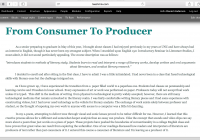 |
E-Portfolio | This assignment details the capstone project for the course, a Web-based portfolio. Students are asked to compile all of their work in the class and to compose reflections that focus on composing processes and learning outcomes. Throughout the semester, feedback is provided on all projects, but the portfolio called for in this assignment is the primary means of assessment for the class. | E-Portfolios |
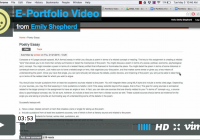 |
E-Portfolio Video | Students are asked to compose a video that prompts reflection on their work with traditional essays on poetry and with e-poems. They are also asked to focus their work on composing, creativity, assessing learning, and understanding literature. The assignment also asks students to conduct research on these topics and to integrate it into their reflections. | E-portfolio Video |
 |
E-Poem Revision and Citation Video | This assignment prompts further reflection on e-poem projects while inviting students to explore the implications of their use of materials. Starting with the premise that citation practices might be extended to include meta commentary that sheds light on the rationale behind the use of materials as well as on personal connections and details about the sources. | Citation Videos |
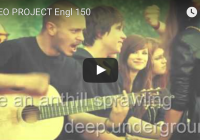 |
E-Poem Revisions | Students are invited to review several of the walkthrough videos of their peers. They also have been asked to review and give feedback on several of their classmates' poems. Here they are asked to distill what they have learned from the work of others, to consider revision suggestions offered for their e-poem drafts, and then to revise their e-poems. | Revised E-poems |
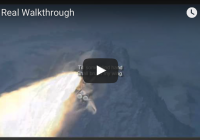 |
E-Poem Walkthrough | In this assignment, students are introduced to the process of using a screen recorder to capture and reflect on projects. Students are invited to walk viewers through the composing of the e-poem. They are also encouraged to discuss potential revisions, detail the use of materials, or explore aspects of learning associated with the project. | Walkthrough Videos |
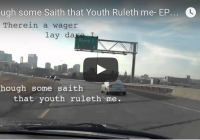 |
E-poem Drafts | The core of the e-poetry project, this assignment asks students to either take an existing poem or to compose a poem of their own, and then to repurpose the text as an e-poem. Because the basics of the video editor have been covered in class, the assignment does not provide step-by-step instructions. Instead, it offers an open-ended prompt, assuming that students will use the project to emulate some of the e-poetry samples covered in class. | E-Poem Rough Drafts |
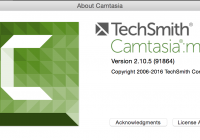 |
Camtasia Tutorials | Students are pointed a download link for a trial version of the software to be used for the assignment. There are also links to tutorials and prompts to which students can respond to demonstrate that they have viewed the tutorials. The goal is to develop familiarity with the software before going forward. | |
 |
Improv E-Poem | Students work in groups to create an e-poem during a class period. The improv assignment gives students a short poem--"The Red Wheelbarrow"--then asks them to create an e-poem that incorporates some of the major moves that might be used in composing a screen video: working with text, incorporating sound, adding animations, etc. | Collected Projects |
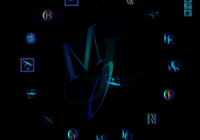 |
E-Poetry Readings | A short collection of readings used to prepare for the e-poetry assignment. Background readings provide two contrasting entries into literary studies. A historical, New Critical perspective is put forth in "The Intentional Fallacy," and a postmodern model of intertextuality is offered in excerpts from S/Z. A piece on the recent art movement called the New Aesthetic is included as well as two pieces that provide entries into thinking about multimedia. There are also a number of readings that provide examples of e-poetry. |



